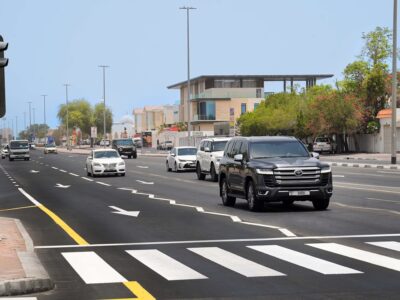The headlines last week may not have made particularly pleasant reading for Nakheel executives, even though they must have been expecting it. In the firm’s Islamic bond prospectus, Nakheel told potential investors that it had written off a hefty $21bn due to the collapse in local property values post-Dubai World.
While the media attention has focused, perhaps unsurprisingly, on the $21bn figure, the truth is that this actually spells pretty good news for Nakheel going forward. If there’s one thing from which investors will run screaming, that’s a lack of accountability.
In March last year, I spoke to Jan Plantagie, the regional head of Standard & Poor’s. At the time, his firm was in the spotlight after Dubai Holding Commercial Operations Group (DHCOG) – which oversees, amongst others, the Jumeirah Group, Dubai Properties Group and Tecom – dropped its relationship with the ratings agency after a disagreement over transparency.
Recalling the Dubai World debt restructuring announcement in November 2009, and the agency’s attempts to find out more information, Plantagie’s comments were telling. “We were trying to speak with everyone from high to low – at the low level they were just as surprised as we were,” he said.
“At the high level, we couldn’t reach people. Some people wouldn’t comment – and it’s on that basis that you have to make your assessments.”
“With the benefit of hindsight many things could have been viewed differently, including assumptions on government support,” Plantagie continued. “Having said that, clear statements from the top never gave rise to the suspicion that support would not be forthcoming.”
While it may be trite to trot out the old ‘how things have changed’ mantra, it’s worth pointing out that Nakheel has had to face down an almighty barrage of justified criticism from its customers, its contractors and its suppliers – not to mention the considerable opprobrium in the international press.
For two years, the firm’s reputation was kicked from pillar to post, as every new creditor pronouncement was greeted with derision.
Restructuring any company is never an easy task. But when the process is as complicated as it has been with Nakheel, and conducted in the full glare of the media spotlight, it’s harder still.
While homeowners and buyers of houses that are yet to be built will understandably disagree, it’s finally time for Nakheel to begin the process of looking forward once again.
The evidence of that is in the Islamic bond prospectus, which clearly shows that the company is moving away from relying on frenetic sales in offplan developments to following the path trodden by Emaar in focusing on regular income-generating assets such as malls and rents. Don’t be surprised if Nakheel also dips its toes back into the hospitality market in the medium term.
A similar amount of attention was afforded a report by Citigroup last week, which calculated that the UAE had cancelled or delayed $170bn worth of construction projects, accounting for 56 percent of cancellations across the main Middle East and North Africa markets. The devil of this report, however, was in the detail. The UAE also announced $1.2bn worth of new projects in August alone, raising its construction pipeline by five percent to $175bn.
Again, the truth may not be exactly pretty, but further transparency as to exactly which projects will not be proceeding has been a long time in coming. If RERA can now confirm exactly which Dubai projects have been cancelled, that should be another shot in the arm for the local property sector.
Ed Attwood is the Deputy Editor of Arabian Business.







